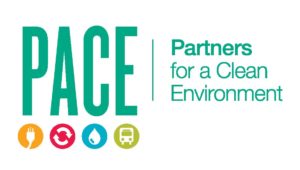

To improve the quality of palliative care in such long-term care facilities (LTCFs), the programme ‘PACE Steps to Success’ was designed. The PACE study was registered at (FP7-HEALTH-2013-INNOVATION-1 603111) July 30, 2015.Īs more and more people live out their lives in nursing and residential care homes, there are concerns about the quality of the end-of-life care given in these settings. The results of the process evaluation will be used to further adapt and improve the PACE Programme prior to its further dissemination. Our analysis helps to better understand the optimal levels of training and facilitation and provides recommendations to improve implementation in the LTC setting. The implementation of the PACE Programme was feasible but leaves room for improvement. Several country-specific challenges in implementing the PACE Programme were identified. The factors affecting performance on the different RE-AIM components could be classified into three major categories: (1) the PACE Programme itself and its way of delivery, (2) people working with the PACE Programme and (3) contextual factors. The performance of the PACE Programme on the RE-AIM components was highly variable within and across countries, with a high or medium score for in total 28 (out of 37) LTCFs on Reach, for 26 LTCFs on Adoption, for 35 LTCFs on Implementation and for 34 LTCFs on intention to Maintenance.

Qualitative data on factors affecting each RE-AIM component gathered in the online discussion groups and interviews were analysed according to the principles of thematic analysis. Based on key elements of the PACE Programme, a priori criteria for a high, medium and low level of the RE-AIM components Reach, Adoption, Implementation and intention to Maintenance were defined. The process evaluation followed the Reach, Effectiveness, Adoption, Implementation, Maintenance (RE-AIM) framework and involved various measures and tools, including diaries for country trainers, evaluation questionnaires for care staff, attendance lists and interviews (online and face-to-face, individual and in groups) with country trainers, managers, PACE coordinators and other staff members. This paper reports on the results of this process evaluation, of which the aim was to provide a more detailed understanding of the implementation of the PACE Programme across and within countries. Alongside an effectiveness study, a process evaluation study was conducted. In a cluster randomized controlled trial, this programme has been implemented in 37 LTCFs in 7 European countries. Help build a strong academic foundation by requiring students to take a college-level class.The PACE ‘Steps to Success’ programme is a complex educational and development intervention for staff to improve palliative care in long-term care facilities (LTCFs).Summer opportunities to explore careers through campus visits and job shadowing.Ongoing advisor support and advocacy for students to ensure their academic success.An up to two-year scholarship to Salt Lake Community College upon successful completion of the PACE Scholarship Program.Eligible high school freshmen at participating schools are invited to enroll in this four-year program. The project was created by a partnership between local high schools, businesses, and Salt Lake Community College (SLCC). PACE (Partnership for Accessing College Education) is a scholarship program created to increase college participation and graduation rates for high school students.


 0 kommentar(er)
0 kommentar(er)
